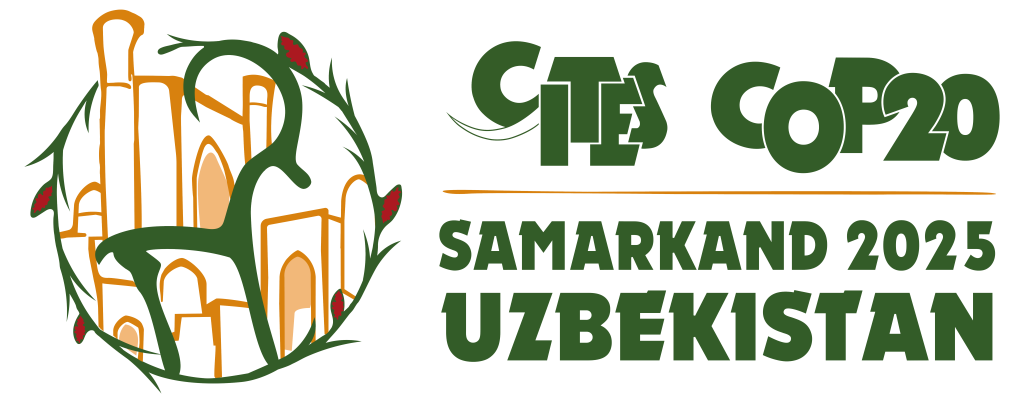Gland, Switzerland
The World Wide Fund for Nature (WWF) was founded in 1961 by IUCN, supported by naturalists and conservationists linked to The Society for the Preservation of Fauna in the Empire and British Nature Conservancy. Its stated mission is to ‘conserve nature and reduce the most pressing threats to the diversity of life on Earth’.
However one of the main motivations for WWF’s creation was to raise funds for IUCN. WWF was needed because IUCN increasingly found it hard to make its science and technical work appealing to the public and big business.
From the beginning WWF used high-profile marketing techniques to appeal to the public’s desire to ‘help save wildlife’. As Chris Hails (Conservation Director, WWF International 1994-2006) explains, ‘in its first three years, WWF donated USD1.9 million to projects in Africa, Europe, India and other places, which was a substantial amount of money in the 1960s’. Today WWF is the world’s best known environmental NGO.
WWF has always been bipolar in its operations. Since its foundation in the 1960s there’s been an ongoing clash within WWF between the conservationists and the fundraisers who care more about income streams than the efficacy of its programmes. In Namibia and Zimbabwe, for example, WWF develops and manages sustainable use programmes premised on ‘use it or lose it’ principles. This includes backing trophy hunting. But you wouldn’t know it from WWF’s close and much better known involvement with Kenya, where it opposes the consumptive use of wildlife and promotes a ‘hands off’ approach as a matter of principle with universal applicability. Hence in its global publicity WWF has consistently opposed trophy hunting. But in 2020, after The Times of London made WWF’s support for trophy hunting in Southern Africa public, it abandoned the policy that it knew to be in the best interest of elephants in order to satisfy the sensibilities of woke Western donors (see: Major conservation charity drops a bombshell, putting the trophy hunting industry on very thin ice).
The World Wide Fund for Nature has been mired in numerous controversies that would have destroyed ordinary commercial organisations. In its most recent scandal WWF was accused of being complicit in serial human rights abuses against indigenous people in Africa, including orchestrating a cover up of murders and rape. According to The Guardian (Armed ecoguards funded by WWF ‘beat up Congo tribespeople’), a team of investigators sent to northern Congo by the UN Development Programme (UNDP) found that the allegations of abuse were based on credible evidence.
Responding to third party pressure WWF commissioned an independent report into the scandal. This confirmed that staff members working in WWF country offices knew for years that there were allegations of violence and misconduct by park rangers who were receiving support from WWF. For example, the report discovered that WWF staff ‘heard allegations of beatings and physical violence carried out by ecoguards in the parks in south-eastern Cameroon as early as 2008’ and yet WWF ‘continued to finance, train and arm the abusers’. As consequence, in 2019, The United States Fish and Wildlife Service defunded WWF. The European Commission also stopped funding WWF‘s leadership role in Messok Dja Park, Democratic Republic of Congo.
But the tide is not turning against the fundraisers within WWF. Target 3 of the ‘Post 2020 Global Biodiversity Framework of the Convention on Biological Diversity‘, published in July 2021, aims to conserve 30 per cent of the wold’s land areas and sea areas by 2030. At COP26 in Glasgow, Scotland, the Bezos Earth Fund announced it was allocating two billion dollars to ‘create, expand, manage, and monitor protected and conserved areas’, especially in the ‘Congo Basin, the tropical Andes, and the tropical Pacific Ocean’. And Jeff Bezos is just one of many multi-billionaires who (arguably mistakenly but wilfully) interprets this target as a call to put off limits to commerce, including for sustainable use and human activity (read expelling people by force and policing zones), almost one third of the world’s oceans and land. For example, the Swiss philanthropist Hansjörg Wyss has committed one billion dollars to the same misanthropic outcome.
After failing at CITES’ COP15 in 2010 to list bluefin tuna in Appendix I, which would have all but ended the trade, WWF decided instead to profit to the tune of millions of dollars from the tuna business. Leveraging its influence as the initiators and co-founders of the International Seafood Sustainability Foundation (ISSF) and the Marine Stewardship Council (MSC), WWF devised a ‘reputation for cash swap’. In summary, it gave member companies of ISSF permission to display the MSC certified albacore and light logo, aka its ecolabel, and the WWF panda logo on their cans of tuna, in return for 13 cents per can sold.
Supposedly, WWF’s endorsement of this eco-labelling scheme signified to consumers that the tuna products being sold were ‘sustainable’ as well as being fisheries and dolphin ‘friendly’. But there was no third party monitoring or measurable standards underpinning WWF’s money-making tuna eco-label scheme, which was self-certifying. Moreover, the three leading companies that WWF endorsed – StarKist, Bumble Bee Sea Foods and Chicken of the Sea – were later found guilty of using ISSF as a convenient cover to organise a cartel. For his part in this multi-billion dollar scam, Chris Lischewski, former chairman of ISSF and CEO of Bumble Bee Sea Foods, was sentenced to three years in prison (See Tuna price fixing scandal and Is ‘Seaspiracy’ Accurate? Fact Checking Dolphin-Safe Label Claims Made By Netflix Doc.)
In 1976, as part of their long term strategy to influence CITES from within, WWF and IUCN co-founded TRAFFIC, an NGO that specialises in providing ‘objective’ monitoring, investigative and other services, especially to CITES. In 2018, TRAFFIC, IUCN and WWF signed a new partnership agreement for work in strategic alliance on wildlife trade issues. To this day, Traffic’s board of directors is dominated by representatives from IUCN and WWF, and TRAFFIC continues to earn millions of dollars from its close relationship with CITES, which relies on it for ‘independent’ and ‘objective’ advice and services (see TRAFFIC entry in this Directory).
Every two years WWF publishes a Living Planet Report, which indexes the state of wildlife and biodiversity. WWF’s fundraising literature claims (falsely) that, based on current trends, elephant populations in Africa face extinction by 2040.
Leaders
Marco Lambertini, Director General of WWF International’s senior management team.
Governance
The World Wide Fund for Nature ’s International Board of Trustees in chaired by Pavan Sukhdev.
Finances
In 2019, according to its annual review, the WWF global network had revenues of EUR 778 million and expenditure of EUR710 million. That includes WWF International, programme offices and national organizational income and expenditure, but not their consolidated accounts.



